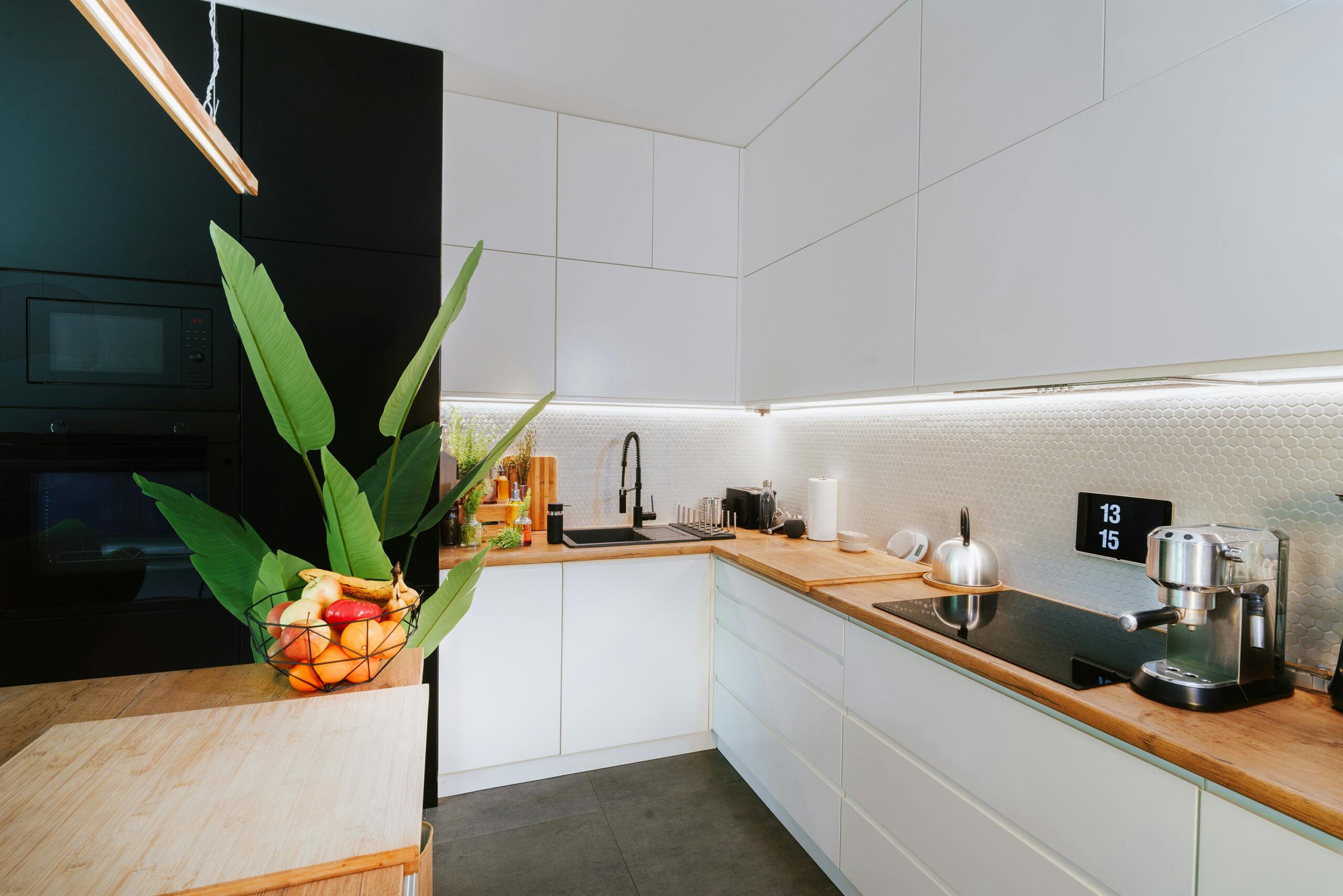The kitchen has always been the heart of the home, but now it’s becoming the smartest room as well. Today’s culinary spaces are undergoing a remarkable transformation powered by artificial intelligence and Internet of Things (IoT) technology. From refrigerators that can track your grocery inventory to ovens that perfect your cooking with algorithmic precision, smart kitchen trends are revolutionizing how we prepare, cook, and store food. This article explores the cutting-edge AI kitchen appliances and IoT kitchen devices that are making cooking more efficient, intuitive, and enjoyable than ever before.
The Kitchen Intelligence Revolution
The concept of kitchen intelligence has evolved dramatically over the past decade. What began with simple digital timers and programmable coffee makers has blossomed into a sophisticated ecosystem of interconnected devices. Today’s smart kitchens leverage artificial intelligence to learn your habits, anticipate your needs, and make cooking more accessible regardless of your culinary skill level. AI-powered appliances can now recognize food items, suggest recipes based on available ingredients, and even adjust cooking parameters in real-time to ensure perfect results. This intelligence extends beyond individual gadgets to create a cohesive kitchen environment where devices communicate with each other to streamline your entire cooking workflow.
The adoption of smart kitchen technology isn’t just about novelty—it’s delivering tangible benefits for everyday life. Studies show that homes with connected cooking platforms save an average of 30 minutes per day on meal preparation, while reducing food waste by up to 25% through improved inventory management and storage recommendations. With the global smart kitchen market projected to exceed $43 billion by 2027, this technological revolution is just getting started.
Smart Refrigeration and Food Management
Perhaps the most visible innovation in the smart kitchen movement is the modern refrigerator. Today’s smart refrigerators represent a quantum leap from their conventional predecessors. Equipped with interior cameras, AI vision systems, and sophisticated sensors, these appliances can track inventory in real-time, identify when products are running low, and even generate shopping lists automatically. Some models can detect when food items are approaching their expiration date and suggest recipes to use them before they spoil.
Beyond inventory management, smart refrigerators serve as central hubs for kitchen organization. With large touchscreen displays, family members can leave digital notes, share calendars, display photos, or stream cooking tutorials. Many units integrate with popular grocery delivery services, allowing you to order replacements for depleted items directly from the refrigerator door. The intelligence extends to energy management as well, with smart systems optimizing cooling cycles based on usage patterns and even responding to electricity pricing signals to reduce consumption during peak demand periods.
Voice-Activated Control and Accessibility
One of the most transformative aspects of the smart kitchen is hands-free control through voice technology. The voice-activated kitchen faucet exemplifies this trend perfectly. These fixtures allow you to turn water on and off, adjust temperature, and even dispense precise measurements through simple voice commands. This functionality proves invaluable when your hands are covered in dough or raw meat, eliminating a common source of cross-contamination while enhancing convenience.
Voice control extends far beyond faucets to virtually every aspect of the kitchen. From adjusting oven temperatures to setting timers, starting coffee makers, or even asking for step-by-step cooking instructions, voice assistants have become indispensable kitchen companions. Major ecosystems like Amazon Alexa, Google Assistant, and Apple HomeKit continue to expand their kitchen integration capabilities, allowing for seamless control of multiple devices through natural conversation. For homeowners considering a kitchen upgrade, finding qualified installers for these sophisticated systems is easier than ever through platforms like AskHomey, where you can connect with pre-vetted smart home specialists in your area.
Connected Cooking Platforms
Perhaps the most exciting development in kitchen technology is the rise of connected cooking platforms that integrate various appliances into cohesive cooking systems. These platforms typically center around smart ovens or cooktops that communicate with recipe apps and other kitchen devices. Using temperature probes, weight sensors, and internal cameras, these systems can monitor cooking with unprecedented precision, automatically adjusting heat and timing to produce consistently perfect results.
Many connected cooking platforms feature guided cooking experiences that walk users through complex recipes step by step. Some can even recognize the food being cooked using computer vision and automatically select the ideal cooking program. The social aspect of cooking hasn’t been forgotten either, with many platforms allowing users to share recipes, cooking tips, and results with online communities. This confluence of precision hardware and intelligent software is democratizing advanced cooking techniques that once required professional training.
The Future of Kitchen Technology
As we look ahead, the integration of AI and IoT in kitchens will only deepen. Emerging technologies like 3D food printing, augmented reality cooking assistants, and advanced food recognition systems are already moving from laboratories to consumer products. The next generation of smart kitchens will likely feature even greater personalization, with systems that can adapt to individual dietary preferences, health requirements, and taste profiles automatically.
One particularly promising trend is the use of AI to promote sustainability in the kitchen. Smart systems are becoming increasingly adept at minimizing energy consumption, reducing food waste, and helping consumers make more environmentally responsible choices. As climate concerns continue to grow, these features will likely become standard expectations rather than premium options.
For more tips and to connect with reliable home service professionals, follow AskHomey on Facebook and Instagram.



